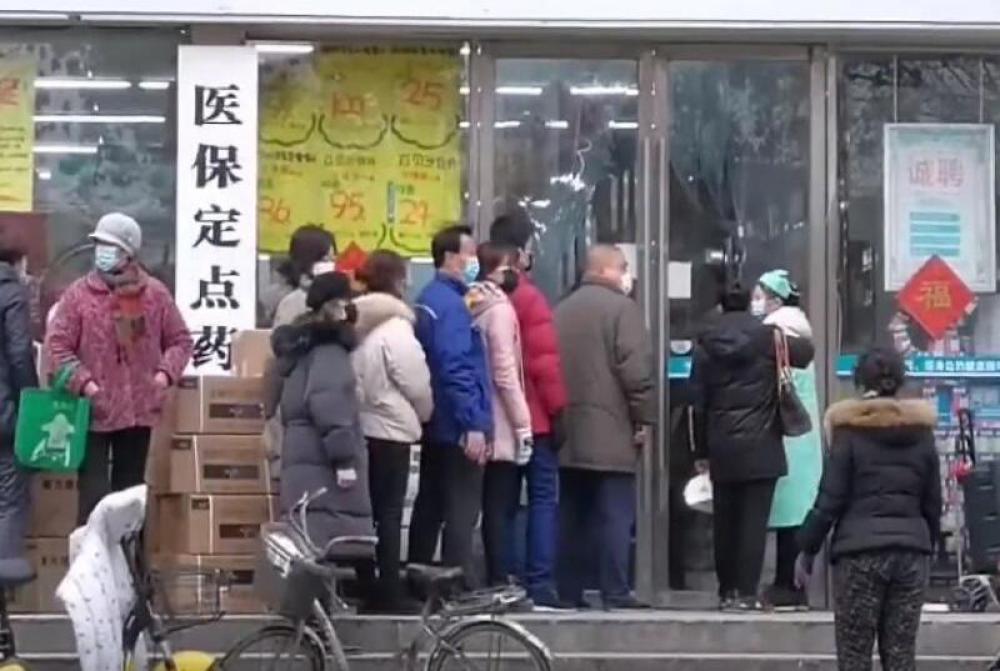Just Earth News | @justearthnews | 21 Oct 2022, 07:15 am Print
 China Lockdown
China Lockdown Image: Wikimedia Commons
Beijing: The world has largely moved on from Covid -- except for China, where towns and cities are still shut down overnight.
And that's unlikely to change soon, judging by President Xi Jinping's opening speech at the Communist Party Congress on Sunday, BBC reported.
China -- and even the world -- was hoping for a hint of relaxation. But Xi, who is set to be handed a historic third term to lead the Party, said that the government would not "waver" in its commitment to record zero cases.
Driven by Xi's approval, China's lockdowns have been incessant, unpredictable and hellish by most accounts.
They have sparked food shortages, crippled healthcare access, hit the economy hard and even spurred rare signs of protest, the BBC reported.
But Beijing has clung to zero-Covid, which has come to define Xi's rule and the authoritarian bureaucracy at his disposal like almost no other policy.
The BBC found that since March, China has partially or fully locked down 152 prefecture-level cities, affecting a population of more than 280 million. But 114 of those have been locked down just since August, as the Party Congress approached.
Beijing is the only major city to have avoided a full lockdown so far. Residents half-jokingly observe that the capital has managed this by locking down the rest of the country when needed.
However on Thursday some housing estates and shopping centres in Beijing were being locked down after a steep rise in cases.
China's bureaucrats have certainly found inventive new ways to describe lockdowns. The measures had become so controversial and dreaded that confusing official-speak was one way to make them more palatable, the report said.
So they used phrases like "stasis management", "at-home stillness" or to be clearer, "stillness throughout the whole region" or "stop all unnecessary movement".
Then came "temporary societal control", which authorities said was not a "lockdown" but reduced movement that somehow would not affect the "normal order of production and life". And yet "the public was asked not to go out unless necessary".
"Enclosed management" was another new phrase invented in the southern province of Guangdong. It means that the village, district or residential compound is enclosed, with checkpoints at entrances and exits. People and vehicles are allowed to enter and leave with passes, the BBC reported.
People who do not live or work in the enclosed area are not allowed to enter. But, residents were told, it's not a lockdown.
When track-and-trace methods started to grate, eager officials came up with an alternative: "temporal and spatial overlapper". The sci-fi-inspired phrase refers to someone whose location, tracked by their phone, has overlapped in time and space with someone else who is Covid-positive.
Rather than tell people not to visit their hometowns during this year's Spring Festival, the governor in Dancheng County in central Henan province warned them that "those who come home with malicious intent will first be quarantined, then be detained", the report said.
Experts also say China's bureaucracy is far more centralised under Xi - it's a reversal of the decentralisation that began after China introduced economic reforms. What that means now is that bureaucrats enforce Xi's signature policies with zeal.
- United Kingdom launches eVisa for Indian visitors starting today — Here’s what travellers need to know
- Abandoned at birth, Punch the macaque finds global love as crowds flock to Tokyo zoo
- YouTube Premium Lite just got a massive boost — Know all details
- Trump claims he stopped 35 million deaths by stopping India-Pakistan war
- Entrepreneur decides to shut down 16-year old eatery in London, cites harassment and Pakistani attacks





-1763561110.jpg)
